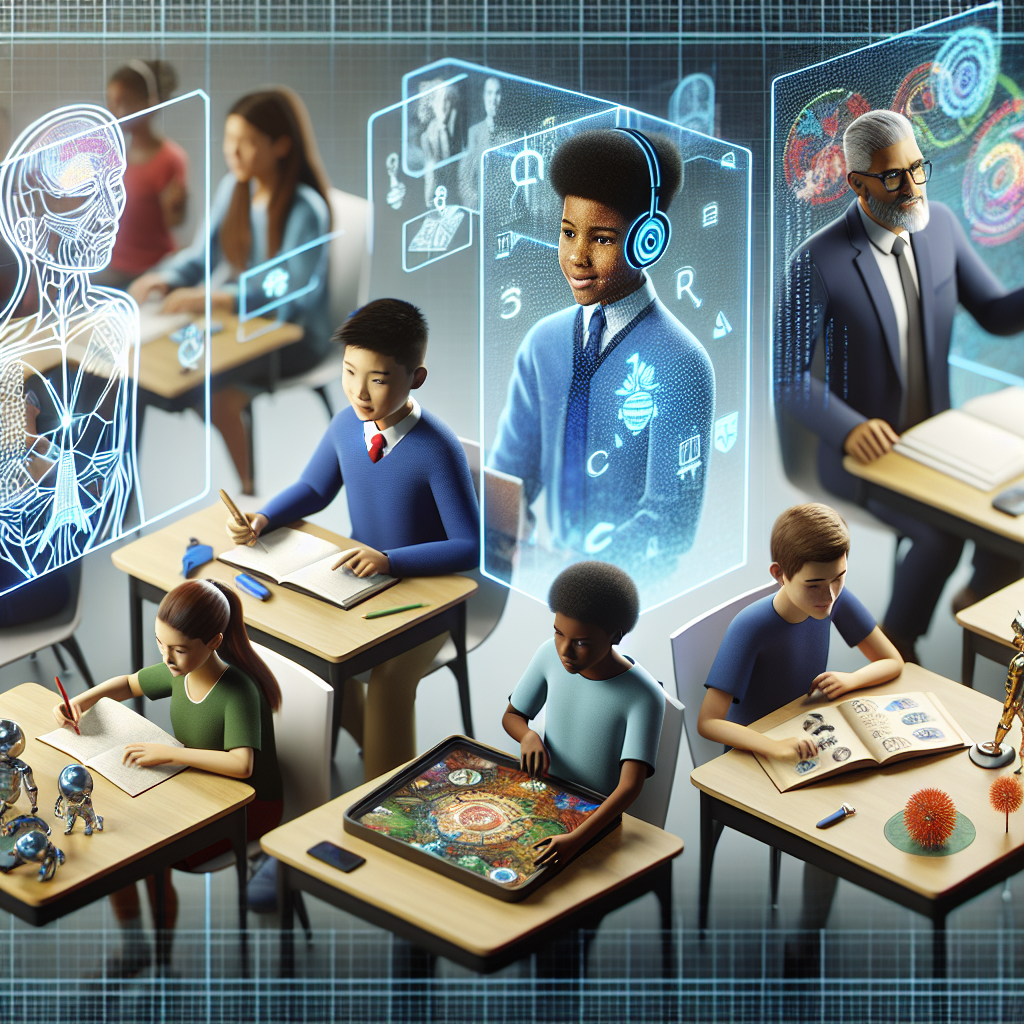The Future of AI Development in Education
Artificial intelligence (AI) has already begun to revolutionize the way we live and work, and its impact on education is no different. From personalized learning experiences to automated grading systems, AI is transforming the way students learn and teachers teach. In this article, we will explore the future of AI development in education and how it is shaping the way we educate our children.
AI in Education Today
AI has already made significant inroads in the field of education. One of the key ways AI is being used in education today is through personalized learning platforms. These platforms use AI algorithms to analyze students’ learning styles, strengths, and weaknesses, and tailor educational content to meet their individual needs. This allows students to learn at their own pace and in a way that is best suited to their unique learning style.
In addition to personalized learning platforms, AI is also being used to automate routine tasks in education, such as grading assignments and providing feedback to students. This allows teachers to spend more time on higher-level tasks, such as designing engaging lessons and providing one-on-one support to students who are struggling.
AI is also being used to enhance the learning experience through the use of chatbots and virtual tutors. These AI-powered tools can provide students with immediate answers to their questions, help them work through problems step-by-step, and even engage them in interactive learning activities. This not only enhances the learning experience for students but also helps to alleviate some of the pressure on teachers by providing additional support to students outside of the classroom.
The Future of AI Development in Education
As AI continues to advance, its impact on education is only expected to grow. In the future, we can expect to see AI being used in even more innovative ways to enhance the learning experience for students and teachers alike. Here are some of the key ways in which AI is likely to shape the future of education:
1. Personalized Learning Experiences: AI will continue to play a key role in providing personalized learning experiences for students. As AI algorithms become more sophisticated, they will be able to analyze students’ learning styles and preferences in even greater detail, allowing for more precise tailoring of educational content to meet their individual needs.
2. Adaptive Learning Platforms: AI-powered adaptive learning platforms will become more prevalent in the future, allowing students to learn at their own pace and in a way that is best suited to their unique learning style. These platforms will not only help students master the material more effectively but will also provide teachers with valuable insights into their students’ progress and areas of difficulty.
3. Automated Grading Systems: AI-powered grading systems will become more sophisticated in the future, allowing for faster and more accurate grading of assignments and assessments. This will free up teachers’ time to focus on more meaningful tasks, such as providing personalized feedback to students and designing engaging lessons.
4. Virtual Classrooms: AI-powered virtual classrooms will become more common in the future, allowing students to attend classes remotely and participate in interactive learning activities from anywhere in the world. These virtual classrooms will not only provide students with greater flexibility in their learning but will also allow teachers to reach a wider audience of students.
5. Intelligent Tutoring Systems: AI-powered intelligent tutoring systems will become more advanced in the future, providing students with personalized support and guidance as they work through problems and assignments. These systems will be able to identify students’ areas of difficulty and provide targeted assistance to help them overcome challenges and master the material.
FAQs
Q: Will AI replace teachers in the future?
A: While AI is likely to automate routine tasks in education, such as grading assignments and providing feedback, it is unlikely to replace teachers entirely. Teachers play a crucial role in supporting students’ social and emotional development, as well as providing personalized guidance and support. AI can enhance the work of teachers by providing additional support and resources, but it is unlikely to replace the human touch that teachers bring to the classroom.
Q: How will AI impact the role of teachers in the future?
A: AI is likely to change the role of teachers in the future by automating routine tasks, such as grading assignments and providing feedback, and providing personalized support to students. This will free up teachers’ time to focus on more meaningful tasks, such as designing engaging lessons, providing one-on-one support to students who are struggling, and fostering a positive learning environment in the classroom.
Q: What are the ethical implications of using AI in education?
A: The use of AI in education raises a number of ethical considerations, including issues related to data privacy, bias in algorithms, and the impact of automation on teachers’ jobs. It is important for educators and policymakers to be mindful of these ethical implications and to ensure that AI is used in a way that is fair, transparent, and respectful of students’ rights and well-being.
In conclusion, the future of AI development in education is bright, with AI poised to revolutionize the way we teach and learn. By leveraging the power of AI to provide personalized learning experiences, automate routine tasks, and enhance the learning experience for students, we can create a more efficient and effective education system that meets the needs of all learners. As AI continues to advance, it will be important for educators and policymakers to be mindful of the ethical implications of using AI in education and to ensure that it is used in a way that benefits students and teachers alike.

